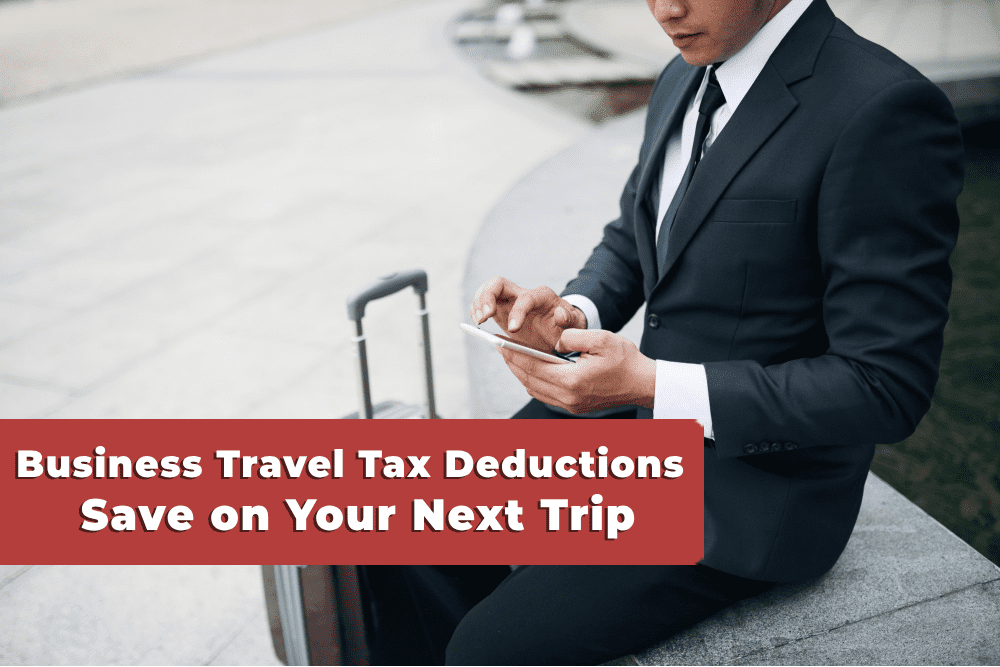As an entrepreneur or freelancer, traveling for business is often part of the job. Whether it’s meeting clients, attending industry conferences, or exploring new business opportunities, travel can be essential for growing your venture. But did you know that many of these travel costs are deductible? Understanding Business Travel Tax Deductions can help you save money and maximize your tax return.
In this guide, we’ll break down what qualifies as deductible business travel expenses, how to keep records, and tips to avoid red flags with the IRS. Let’s dive into the world of tax-saving opportunities for your business travel.
What Are Business Travel Tax Deductions?
Business Travel Tax Deductions are expenses incurred while traveling for business purposes that the IRS allows you to deduct from your taxable income. These deductions can significantly reduce your overall tax liability. However, to qualify, your travel must meet specific criteria:
- The Travel Must Be Necessary for Business
Your trip should have a clear business purpose, such as meeting with clients, attending trade shows, or scouting potential business locations. - The Trip Must Be Away From Your Tax Home
Your “tax home” refers to the city or area where your primary place of business is located. Travel within your local area typically doesn’t qualify as deductible. - The Expenses Must Be Ordinary and Necessary
The costs should be common and reasonable for your industry or type of business.
Examples of Deductible Business Travel Expenses
Here are some common Business Travel Tax Deductions you may be eligible for:
- Transportation Costs
- Airfare, train tickets, or bus fares.
- Car rentals and associated expenses (e.g., gas, tolls).
- Mileage if you drive your personal vehicle for business purposes (use the IRS mileage rate).
- Ride-share services like Uber or Lyft.
- Lodging and Accommodations
- Hotel stays or short-term rentals like Airbnb are deductible as long as the trip is business-related.
- Remember, extravagant accommodations may raise a red flag with the IRS. Stick to reasonable options.
- Meals During Travel
- You can deduct 50% of meal costs while traveling for business.
- Keep receipts and note who attended the meal and the purpose of the meeting.
- Incidental Expenses
- Tips for service staff.
- Laundry and dry-cleaning services.
- Internet and phone charges for business purposes.
- Conference or Event Fees
- Registration fees for workshops, seminars, or conferences.
- Shipping Costs
- If you ship materials or equipment for a business trip, those costs are deductible.
Non-Deductible Travel Expenses
Some expenses might seem business-related but aren’t deductible. Examples include:
- Personal leisure activities during a business trip.
- Travel expenses for family members (unless they are employees).
- Unreasonable luxury expenses.
Record-Keeping Tips for Business Travel
Good record-keeping is crucial for claiming Business Travel Tax Deductions without issues. Here’s how to stay organized:
- Save All Receipts
Keep receipts for flights, hotels, meals, and transportation. - Use a Travel Log
Document the date, purpose, and business connection of each trip. - Use Business Credit Cards
Paying with a dedicated business credit card makes tracking expenses easier. - Digital Tools for Expense Tracking
Apps like Expensify or QuickBooks can simplify expense management and create clear records.
You may also like to read:
Quarterly Tax Payments Made Easy: A Freelancer’s Guide to Staying on Top of Taxes
Freelancing comes with incredible flexibility and the freedom to work on your terms. However, with great freedom comes…
Read More

Tips to Avoid Red Flags
To ensure your deductions are accepted, follow these tips:
- Don’t Mix Personal and Business Travel
If you extend a business trip for personal reasons, you can only deduct expenses directly related to business activities. - Document Everything Clearly
The IRS may require proof of your travel purpose, so always document meetings, events, and other business-related activities. - Stay Within Reasonable Limits
Lavish expenses could invite an audit.
Planning Ahead: Business Travel Deductions for the Self-Employed
If you’re self-employed, you can claim Business Travel Tax Deductions directly on your Schedule C form. Be sure to:
- Use accurate numbers from your records.
- Consult a tax professional if you’re unsure about any deductions.
Conclusion
Taking advantage of Business Travel Tax Deductions can help you save significant money during tax season. The key is to understand what qualifies as deductible, keep detailed records, and stay within IRS guidelines. By managing your travel expenses wisely, you’ll not only reduce your tax liability but also make smarter financial decisions for your business.



